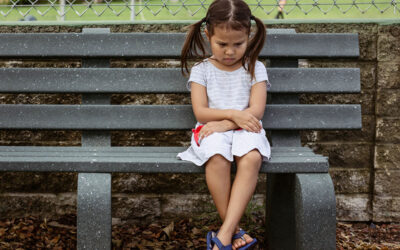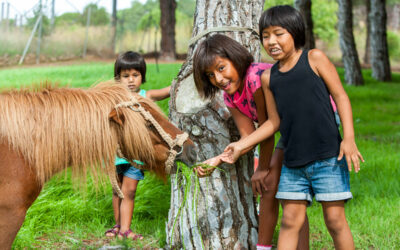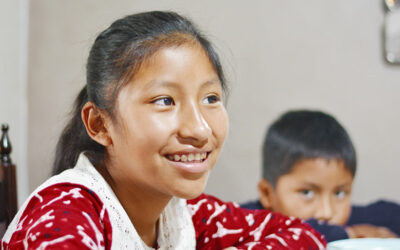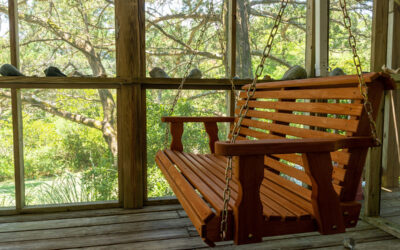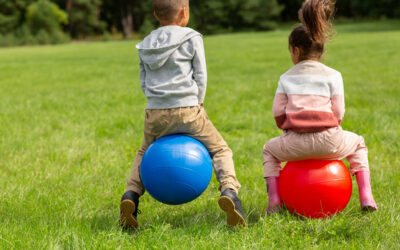Articles
Healing from Trauma/Neglect/Abuse
Recognizing Signs of Depression and Anxiety in School-Aged Children
Sometimes, the children in your care may feel sad or worried because of leaving their familiar setting, their parents’ struggles, or relationships at home, school, or with friends. Those feelings can be quite developmentally normal. But when sadness or worry lasts a...
Practical Tips for Supporting a Relative Caregiving Family
When a relative child comes into care unexpectedly, whether you’re an auntie, uncle, cousin, grandparent, or other relative, it can turn life upside down. In Cherokee families, stepping in for children is not new. We have always believed children belong to the whole...
Tips for Welcoming a Tween or Teen Relative to Your Home
When your tween or teen relative can no longer live safely with their parents, moving to a relative’s home can bring many mixed feelings. They may feel relief, fear, anger, or guilt. The feelings are mixed for you, too: uncertainty, hope, or even overwhelm. All of...
Impacts of Prenatal Exposure to Alcohol and Drugs
Handling the Holidays When Life Feels Overwhelming
If it feels like the kids start acting up the minute the decorations go up—you're not imagining it. The holidays can bring out big emotions in everyone, especially children who’ve been through hard times. Whether you’re raising your grandchild, niece, nephew, or...
5 Ways to Help a Child with Sensory Challenges
Many of the grandchildren, nieces, nephews, and other kids you care for have been through hard things, such as neglect, abuse, loss, or exposure to alcohol or drugs before birth. These early experiences can shape how a child’s brain and body respond to the world...
Do You Need Help with Your Relative Child’s Tantrums, Rages, and Meltdowns?
Does this sound familiar? Your grandchild starts yelling, crying, or storming off in the middle of the grocery store. Your heart starts racing, and you feel like all eyes are on you! Do you need better tools to handle your grandchild's or other relative child’s...
Challenging Behaviors
Recognizing Signs of Depression and Anxiety in School-Aged Children
Sometimes, the children in your care may feel sad or worried because of leaving their familiar setting, their parents’ struggles, or relationships at home, school, or with friends. Those feelings can be quite developmentally normal. But when sadness or worry lasts a...
Tackling Backtalk, Sassiness, and Verbal Disrespect in Your Home
Raising a relative’s child is an opportunity to lead them toward healing and to give them access to your family’s culture, history, values, and love. Because you care deeply, it can hurt when a child talks back, uses a sharp tone, or responds with sass. You may feel...
At-Home Strategies to Support Your Relative Child with ADHD
If you’re caring for a grandchild, niece, or nephew who has ADHD (attention-deficit/hyperactivity disorder), you know it comes with challenges and rewards. Being a relative caregiver in this community means you bring deep roots, caring traditions, and strong support...
ADHD
At-Home Strategies to Support Your Relative Child with ADHD
If you’re caring for a grandchild, niece, or nephew who has ADHD (attention-deficit/hyperactivity disorder), you know it comes with challenges and rewards. Being a relative caregiver in this community means you bring deep roots, caring traditions, and strong support...
Handling the Holidays When Life Feels Overwhelming
If it feels like the kids start acting up the minute the decorations go up—you're not imagining it. The holidays can bring out big emotions in everyone, especially children who’ve been through hard times. Whether you’re raising your grandchild, niece, nephew, or...
5 Ways to Help a Child with Sensory Challenges
Many of the grandchildren, nieces, nephews, and other kids you care for have been through hard things, such as neglect, abuse, loss, or exposure to alcohol or drugs before birth. These early experiences can shape how a child’s brain and body respond to the world...
Disrupting Birth Order
Rules of Thumb When Raising a Relative’s Child Disrupts Birth Order
Blending a family of your children with a grandchild, niece, or nephew can involve raising children out of birth order. Your nephew may be older than your oldest child, or your granddaughter may now be the middle child of the kids living in your home. Do you wonder...
Welcoming a Sibling Group to Your Home
You and the members of your family have significant changes ahead to consider. Your grandchildren (or nieces and nephews or siblings) are coming to live with you for a while because their parents cannot keep them safe right now. However, it's critical to remember that...
Preparing Children in the Home for Adding a Relative’s Child
Welcoming another child to your home, whether a grandchild, cousin or other loved one, can change how you relate to each other. It can create significant stress for all the children. There are practical suggestions you can try to help everyone in the family settles...
Helping A Child Heal from Sexual Abuse
Truths Every Child Needs to Hear
When a child has experienced abuse, neglect, or loss, they often take those events into their hearts and minds and then believe things about themselves that are untrue. They frequently feel guilt or shame as if the abuse or chaotic conditions of their life are their...
Helping Manage Inappropriate Behaviors for Children with Prenatal Substance Exposure – Part 2
As we discussed in Part 1 of this article series, it’s common for children with exposure to drugs and alcohol during pregnancy to struggle with inappropriate sexual behaviors. Whether the child acts out in sexually uncomfortable ways or has been a victim of unwanted,...
Helping Manage Inappropriate Behaviors for Children with Prenatal Substance Exposure – Part 1
It’s common for children who were exposed to drugs and alcohol during pregnancy to struggle with inappropriate behaviors. One of the most challenging behaviors you might see in your grandchild is inappropriate sexual behavior. Another painful issue is that children...
School Issues for Foster & Kinship Kids
Preparing Your Relative Youth for Adulthood: Learning Work and Life Skills
When your grandchild or another young relative says they don’t want to go to college, you might feel a mix of emotions, such as worry, confusion, sadness, or even relief. Whatever you think, it’s okay. You’ve already carried a big load helping them get this far. Their...
Preparing Your Relative Youth for Adulthood: College or Vocational School
When your grandchild or another young relative starts talking about life after high school, it can feel both exciting and overwhelming. You’ve already helped them through so much, like school projects, doctor visits, hard days, and big dreams. Now it’s time to help...
A Relative Caregiver’s Guide to Back-to-School Time
Raising your grandchild, niece, nephew, or other relative and navigating their school experience with them can bring new and different challenges your way, especially if things are different than when you raised your own children. Whether it’s your first school year...
Technology/Internet and Our Kids
How to Talk to Teens About Screens
When you’re raising a relative’s teen in your home, especially when that teen couldn’t live safely in their parents’ home, you may face unique challenges. One of the big ones today is screens: phones, tablets, gaming, social media. It can feel like you’re fighting a...
A Guide to Managing Screen Time When Raising a Relative Child
Raising your niece, nephew, or grandchild in this tribal community is an act of great love, strength, and intentionality. Your relative child may have faced early challenges before joining your household, like being exposed during pregnancy to drugs and alcohol, or...
Helping Tweens and Teens Use Screens Safely
Raising a tween or teen today means dealing with phones, social media, and online safety. If your grandchild or a young relative has come to live with you, and you haven’t had to manage screen time before, it can feel overwhelming. When you educate yourself and...
Self-Care for Kinship and Foster Parents
Five Gentle New Year Intentions for Relative Caregivers
The new year offers a fresh start. You can take time to slow down, breathe, and remember what matters most. When you are raising a grandchild, niece, nephew, or other relative’s child, you already know how much love and energy this takes. These children have been...
Planning for the What-Ifs: Caring for Your Grandchild’s Future is Self-Care
Raising a grandchild, niece, nephew, or another relative’s child is one of the most loving things you can do for that child. However, planning for their future is also a significant act of self-care. By making a plan for the well-being of this child whom you love so...
Self-Care & Raising Relative Children: Taking Care of Your Body, for Them and You”
When you’re raising grandchildren or another relative’s children, it’s easy to put your own needs last. There’s always something else to do—another meal to make, a school form to sign, a ride to give. But here’s the truth: taking care of your physical health isn’t...
Relationship with Child’s Parent
Welcoming a Child to Your Home as a Relative Caregiver
When a child in your extended family can’t live with their parents, it often falls to someone like you—a grandparent, aunt, uncle, or cousin—to step in and offer the safety, love, and stability they need. Bringing this child into your home is a powerful act of care....
Taking Care of Your Grandchild’s Mental and Emotional Wellbeing
Raising your grandchild, niece, nephew, or other young relative can be a blessing. However, it can also be challenging to navigate. When a child lives apart from their parent—especially due to addiction or substance use—it can create deep emotional stress for everyone...
How to Build Your Family’s Resilience
We all want the children we love to be able to face hard times and cope with them successfully. The ability to “bounce back” from life’s challenges can be part of a child’s naturally wired temperament. However, other kids may need help learning how to develop their...
Working Together For the Good of the Child In Your Care
Welcoming a Child to Your Home as a Relative Caregiver
When a child in your extended family can’t live with their parents, it often falls to someone like you—a grandparent, aunt, uncle, or cousin—to step in and offer the safety, love, and stability they need. Bringing this child into your home is a powerful act of care....
Why Your Grandchild Needs Mentors
Raising a grandchild or another young relative often means you may need additional creative ways to set them on a path to successful adulthood. When a child has experienced the trauma of being separated from their parents -- due to substance use, unstable housing, or...
Life Skills to Build Capable Young Adults
When you're raising a grandchild, niece, nephew, or other young family members, you're not just stepping in — you're standing in the gap. Many of these kids carry heavy stories: trauma, abuse, family separation, prenatal substance exposure and more. You hold dear the...
Raising Adolescents (tweens/teens)
Tips for Welcoming a Tween or Teen Relative to Your Home
When your tween or teen relative can no longer live safely with their parents, moving to a relative’s home can bring many mixed feelings. They may feel relief, fear, anger, or guilt. The feelings are mixed for you, too: uncertainty, hope, or even overwhelm. All of...
How to Talk to Teens About Screens
When you’re raising a relative’s teen in your home, especially when that teen couldn’t live safely in their parents’ home, you may face unique challenges. One of the big ones today is screens: phones, tablets, gaming, social media. It can feel like you’re fighting a...
Have Some Winter Fun and Build Connection with Your Relative Tween or Teen
Do you ever catch yourself singing “Rockin’ around the Christmas tree…” and halfway through realize your tween or teen grandchild is doing their own version behind you, complete with lip-syncing, eye-rolling, but they’re secretly smiling too? That little burst of...
Supporting Healthy Relationships/Attachment
Recognizing Signs of Depression and Anxiety in School-Aged Children
Sometimes, the children in your care may feel sad or worried because of leaving their familiar setting, their parents’ struggles, or relationships at home, school, or with friends. Those feelings can be quite developmentally normal. But when sadness or worry lasts a...
Practical Tips for Supporting a Relative Caregiving Family
When a relative child comes into care unexpectedly, whether you’re an auntie, uncle, cousin, grandparent, or other relative, it can turn life upside down. In Cherokee families, stepping in for children is not new. We have always believed children belong to the whole...
Why Friendships Matter: Part 2 — A Practical Tipsheet
As a continuation of the previous article, this practical tipsheet offers simple, hands-on ways for children of all ages to practice friendship skills at home. These activities are especially helpful for kids who struggle with social cues, emotional regulation, or...
Phone
This website was supported with funding from the U.S. Department of Health and Human Services, Administration for Children and Families’ Children’s Bureau through the Improving Child Welfare Through Investing in Family grant #HHS-2021-ACF-ACYF-CW-1921. The purpose of this grant is to provide an array of kinship preparation services and ongoing kinship supports, and provide shared parenting to build trusting relationships between all out-of-home caregivers and parents of children/youth in foster care to ensure parents and families remain actively involved in normal child-rearing activities.
This website is supported by Grant Number 90CW1149 (HHS-2021-ACF-ACYF-CW-1921) from the Children’s Bureau within the Administration for Children and Families, a division of the U.S. Department of Health and Human Services. Neither the Administration for Children and Families nor any of its components operate, control, are responsible for, or necessarily endorse this website (including, without limitation, its content, technical infrastructure, and policies, and any services or tools provided). The opinions, findings, conclusions, and recommendations expressed are those of the author(s) and do not necessarily reflect the views of the Administration for Children and Families and the Children’s Bureau.






